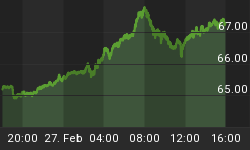Spain needs assistance with their troubled banks, but politicians are looking for very few strings to be attached, which is not going over big in Germany. From Bloomberg:
Spain called for outside funds for the first time to battle its financial crisis as Budget Minister Cristobal Montoro said European "institutions" should help shore up the nation's lenders...Prime Minister Mariano Rajoy has repeatedly called for the European Stability Mechanism, the euro region's permanent rescue fund, to be able to sidestep governments and recapitalize lenders directly. At the same, he has ruled out the need for a bailout either for the nation or its banks.
Spain is hoping for the formation of a "banking union". Germany may be open to the idea, but in a secondary phase coming after countries agree to transfer power to a centralized body. From the Wall Street Journal:
German Chancellor Angela Merkel on Monday suggested that European Union leaders consider putting the largest banks in the 27-nation bloc under direct European supervision, opening the door to more centralized oversight of the region's financial sector... However, the German leader stopped short of endorsing more ambitious plans to safeguard the region's financial system by creating a "banking union." Under that idea, which was presented last week by the commission, there would be a Europe-wide depository insurance and other financial backstops.
The problem with the Merkel approach is the implementation period. The Wall Street Journal questioned the impact of a five-year plan relative to stemming bank runs and rising bond yields:
Yet it's unclear what, if any impact, these initiatives would have on the region's unfolding debt crisis. Many of the proposals under consideration would take years to put in place. That could help prevent a future crisis, but wouldn't address more immediate problems, such as the widening banking turmoil in Spain.
In early May, we warned that big problems remained in Europe and presented the chart below of German stocks. The black line is the German stock index. The thin colored lines are moving averages, which are used to filter out volatility enabling us to more clearly see the underlying trend in stock prices. In terms of trends, not much has improved in recent weeks.

Deteriorating markets have been rescued with various forms of government intervention since 2007. The markets will be looking for another life raft from an upcoming G-7 conference call followed by the next EU summit. From Reuters:
A G7 source familiar with plans for the call, likely to be held late in the Asian night, said the group would urge more progress at an EU summit on June 28-29, though this alone would probably disappoint global markets. But there was only a very small chance the G7 would go so far as to pledge coordinated action to curb excessive volatility in currency markets, the source added.
The table below shows our market models have a mixed neutral-to-bearish bias. The term bullish no longer appears, something that may only be rectified at this point by more intervention from global policymakers. The CCM risk model, currently in bearish territory, is the "fastest" of the three core models. The risk model will help assess the impact of the next round of loans, money printing, bank rescues, and steps toward "more Europe", as Angela Merkel likes to say. At this point, the taxpayers in Germany may be hoping for "less Europe".

As of Monday's close, there is little pointing toward anything greater than a dead cat bounce in stocks. We are looking for the markets to show us something before we consider redeploying cash. Watch lists have been filtered and sit ready to go.















